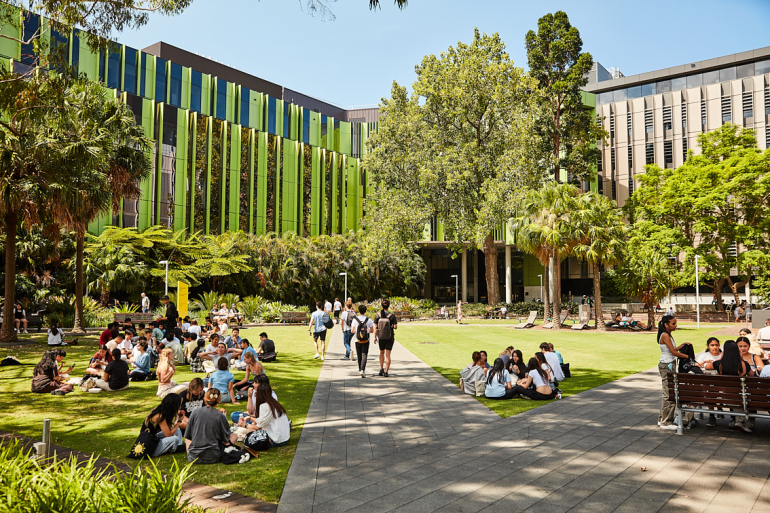UNSW Sydney marked World Environment Day with the release of the Environmental Sustainability Report 2022.
This is the first progress report of the Environmental Sustainability Plan (ESP) 2022-24, which deepens UNSW’s commitment to environmental sustainability and builds on our achievements to date. UNSW’s progress includes installing a new solar photovoltaic (PV) system, new recycling systems and responsible investment strategies.
“UNSW has a strong heritage of expertise in climate science and sustainability,” said Professor Attila Brungs, UNSW Vice-Chancellor and President.
“As a public service university, we have a responsibility to use our rich source of knowledge and capability to deliver solutions to the climate crisis and secure a more liveable world.”
Celebrating our achievements
Amongst other achievements recognised in the report, UNSW achieved the following in 2022:
- Completed the Electrification Strategy and installed a new solar PV system at the Paddington campus to continue our transition towards clean renewable electricity.
- Implemented low-emissions and fossil-free investment strategies.
- Won a Banksia 2022 NSW Sustainability Award in the ‘Net Zero Action’ category.
- Expanded the Laboratory Efficiency Framework (LEAF) program, with 22 laboratory teams participating and 18 now accredited University-wide.
- The Village Green project was completed, incorporating an expanded stormwater infiltration tank, reduced embodied carbon and other sustainable design features.
- Introduced the Plastic Free Dining Awards to recognise campus retailers’ efforts to eliminate single-use plastics.
- Expanded food waste collection to office kitchens and introduced a soft plastics collection system.
- Diverted 84% of surplus UNSW furniture from landfill to beneficial reuse via the furniture reuse program.
World Environment Day is a United Nations event that reminds us to take action to conserve and protect our natural environment. The theme for World Environment Day 2023 is #BeatPlasticPollution, a reminder that our actions on plastic pollution matters, and flow on to changes in industry and government. At UNSW, we recognise, the difference we can make and have introduced the Plastic Free Dining Awards to incentivise sustainable retail practices on campus.
“This World Environment Day we’re releasing a comprehensive update on our progress towards our environmental sustainability goals, while noting what still needs to be done,” said William Syddall, Head of Environmental Sustainability.
“In 2023 we are focused on implementing our Electrification Strategy, engaging with our supply chain to tackle scope 3 emissions, expanding our laboratory sustainability program and understanding our impacts and dependencies on nature.”
How you can support the Environmental Sustainability Plan 2022-24
You can find a range of useful resources to help embed sustainability principles into day-to-day activities on the ‘take action’ page of the Environmental Sustainability website. These include an action plan template for faculties and divisions, and guides for sustainable events, offices, reuse and recycling at UNSW.
The Laboratory Efficiency Assessment Framework (LEAF), an initiative that aims to drive sustainable laboratory practices, is expanding in 2023. Registration for LEAF@UNSW is open now to any UNSW laboratory team.
You can read the Environmental Sustainability Report 2022 now and find out more about sustainability at UNSW on the Environmental Sustainability website.
